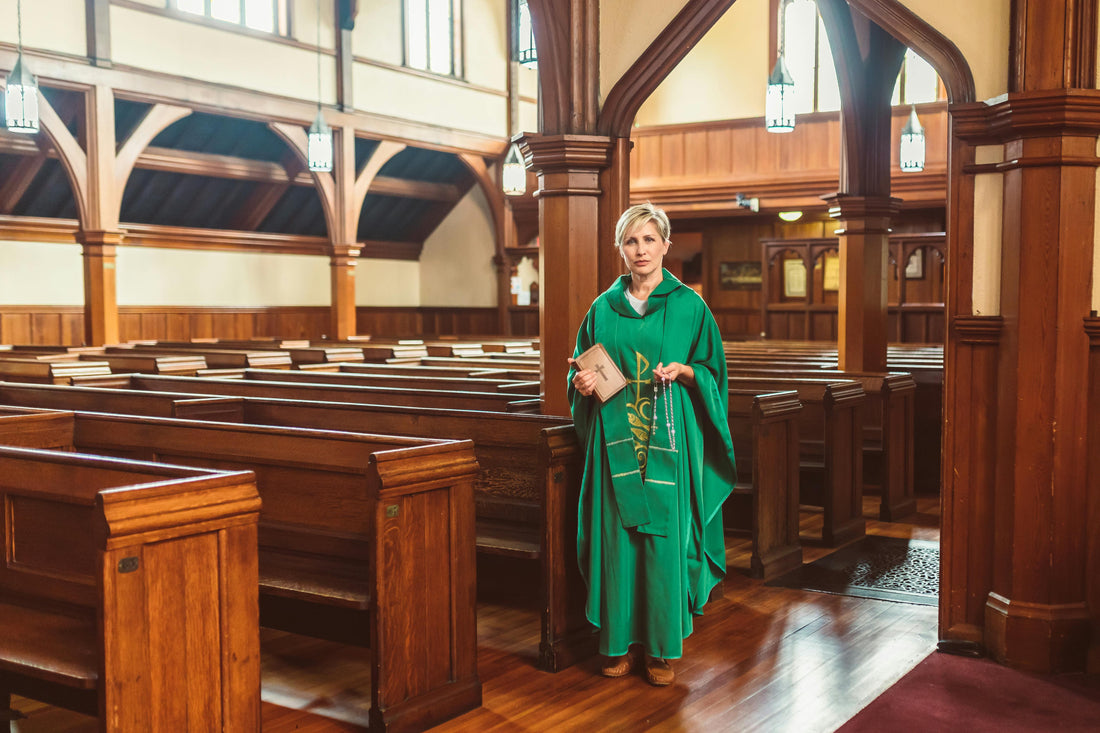
This Is What the Bible Says About Women Preaching and Spreading the Gospel
Matthew BellShare
The role of women in ministry has been a subject of debate for generations, but the Bible provides numerous examples of women who were called by God to spread His message. While cultural norms in biblical times may have limited women’s roles, the Word of God shows us that women are an integral part of His mission.
Let’s dive into Scripture to see how God empowers women to preach, teach, and share the gospel.
Women Empowered by God in Scripture
1. The Great Commission is for All
Jesus’ final instruction to His disciples is often referred to as the Great Commission:
"Therefore go and make disciples of all nations, baptizing them in the name of the Father and of the Son and of the Holy Spirit, and teaching them to obey everything I have commanded you." (Matthew 28:19-20)
This command was not exclusive to men—it was given to all His followers, including women. The responsibility to share the gospel transcends gender.
2. Women as Witnesses to Christ
The first witnesses to Jesus’ resurrection were women. Mary Magdalene and the other women at the tomb were given the critical task of sharing the news of the risen Christ:
"Jesus said to her, ‘Do not hold on to me, for I have not yet ascended to the Father. Go instead to my brothers and tell them, ‘I am ascending to my Father and your Father, to my God and your God.’” (John 20:17)
In a culture where women’s testimonies were often undervalued, Jesus entrusted women with the most important message in history: that He had conquered death.
3. Women in Leadership Roles
Throughout Scripture, women are seen taking on leadership and teaching roles:
- Deborah: A judge and prophetess, Deborah led Israel in both spiritual and military matters (Judges 4-5).
- Priscilla: Alongside her husband, Aquila, Priscilla taught and discipled Apollos, an influential preacher (Acts 18:26).
- Phoebe: Mentioned by Paul as a deacon in the early church, Phoebe carried the letter to the Romans and likely explained it to the congregations (Romans 16:1-2).
These examples show that women were not only allowed to lead and teach but were commended for it.
Addressing Misinterpreted Passages
Some may point to passages like 1 Timothy 2:12 (where Paul says, “I do not permit a woman to teach or to assume authority over a man”) as prohibitions against women preaching. However, it’s essential to consider the cultural context of these verses.
- Cultural Context: In Timothy’s setting, certain practices disrupted church order, prompting Paul to address specific concerns. These instructions were not blanket statements for all times and places.
- God’s Call is Sovereign: Throughout Scripture, God calls both men and women to proclaim His truth, regardless of societal norms.
Jesus’ Example of Valuing Women
Jesus consistently elevated women, breaking cultural barriers:
- He spoke with the Samaritan woman at the well, leading her to evangelize her entire village (John 4:28-30).
- He allowed Mary of Bethany to sit at His feet and learn as a disciple (Luke 10:39).
Jesus’ ministry demonstrated that women are vital to the advancement of the kingdom.
The Gospel is for Everyone to Share
The heart of the gospel is inclusivity. In Christ, there is no hierarchy based on gender:
"There is neither Jew nor Gentile, neither slave nor free, nor is there male and female, for you are all one in Christ Jesus." (Galatians 3:28)
This unity means that the call to preach and disciple is open to everyone whom God equips and calls.
How Women Can Preach and Share the Gospel Today
- Through Personal Testimonies: Sharing how God has worked in your life is a powerful way to spread His love.
- Teaching and Mentorship: Women can disciple others through Bible studies, mentorship, and teaching.
- Serving in Church Roles: Whether in missions, worship leadership, or pastoral care, women have countless ways to contribute to God’s work.
- Everyday Evangelism: Sharing the gospel in workplaces, schools, and communities reflects the early church’s example of spreading the good news wherever they went.
Conclusion
The Bible makes it clear that women are essential to God’s mission. From the Great Commission to the resurrection, women have been trusted to proclaim His truth. God’s call to share the gospel knows no boundaries of gender, and His Spirit empowers all believers to be His witnesses.
Are you ready to embrace your role in spreading the gospel, no matter who you are? Trust that God has equipped you for the task.
How has God called you to share His message? Share your story in the comments below!
